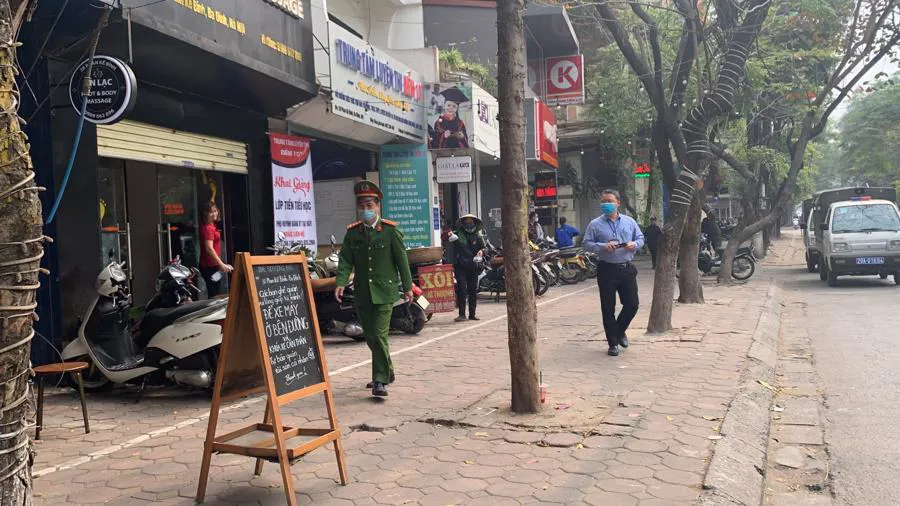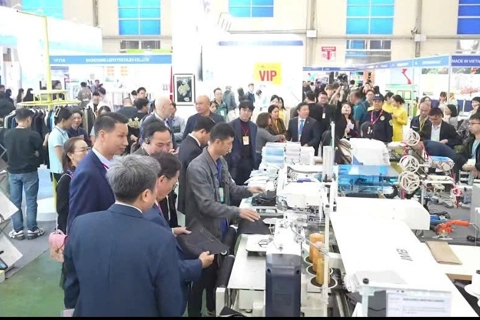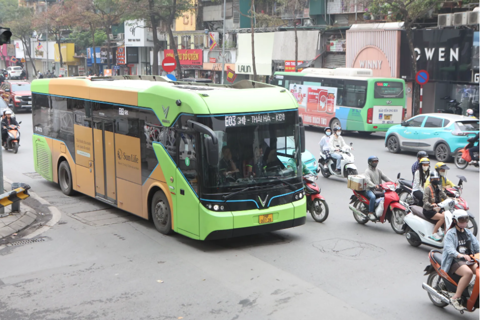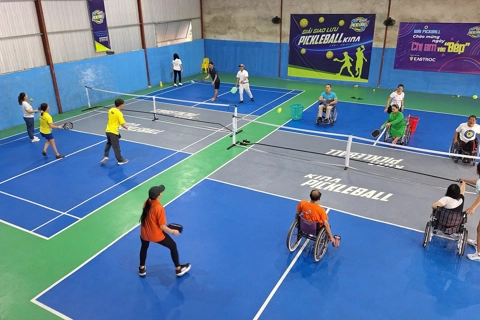Hanoi plans new rules on parking
As of March 25, the municipal administration had imposed fines totaling VND50.5 billion ($2.15 million) for infractions on the pavement.
Hanoi's authorities will make public the guidelines on the streets and roads where drivers can park their cars, Vice Chairman of the municipal People's Committee Duong Duc Tuan has said.
| A local police officer travels to check on the station of motorbikes on the streets of Hanoi. Photo: Cong Trinh/The Hanoi Times |
There will be a new list of streets and roads on which the city forbids the parking of motorbikes and cars, Tuan told an online meeting of the Hanoi Party Committee, the Hanoi People’s Council, the Hanoi People’s Committee, and chiefs of the 30 districts and towns.
The city's legislators will also modify the regulations governing vehicle parking, instructing local governments to reserve a specific portion of the pavement for parking motorcycles and bicycles only, he said.
The vice chairman added that substantial investment would be made in underground and surface parking, and the city would check the legality of every parking spot in the area.
To ensure both urban civilization and a means of subsistence for the populace, Tuan said, "the governments of districts and towns will work with relevant agencies to support pavement businesses, vehicle parking sites, vendors, and traditional markets."
Sharing his view on the problem, the Hanoi Party Committee secretary Dinh Tien Dung said that authorities need to look for long-term solutions as recent measures cannot resolve the fundamental issues despite effectiveness.
He recommended that the city hire the pavement out on hourly charges, and allow vehicle parking on the side of some designated streets.
Local authorities must work to reduce traffic congestion and lure investment to build infrastructure in attempts to improve transportation in their territories, Dung said.
The plan for the management of pavement and sidewalks should meet the basic conditions of each neighborhood, the city’s party chief added.
The planning should be public so that people can exercise the right to contribute their opinions, he said, adding that some areas are now ready for being tested.
“Pavement and sidewalks are the sources of earnings for many people and also for the urban economy,” he said. “It is the poor urban planning and development that have caused the city to struggle with existing difficulties.”
The previous actions represent the local government's efforts to clear the sidewalks and preserve pedestrian space.
On February 15, the city's law enforcement launched a campaign to educate residents and deal with those using the sidewalks for vehicle parking and conducting business.
By March 25, city officials had dealt with 24,300 road traffic violations and imposed fines totaling VND50.5 billion ($2.15 million).
With between 653 and 1,554 cases, Hoang Mai, Dong Da, and Hoan Kiem are some of the urban areas with the most violations.
Law enforcement agencies have taken drastic measures to remove name boards, signs, roofs, and other obstructions so that pedestrians can use the sidewalks again.
Locals, however, have complained that they can no longer conduct business on the sidewalk. The pavement on some roadways has been reclaimed for retail sales.
For many years, street vendors and pavement businesses have been a part of Vietnamese culture. Households set up shops, and vendors offer souvenirs and farm produce on pavement and sidewalks.
The city has many short, narrow streets, so the sidewalk is the ideal parking space for bicycles and motorbikes.
Meanwhile, the city's car population has increased due to rapid urbanization and higher living standards. Eight million people live in Hanoi permanently, while there are currently one million vehicles in the city, according to the municipal transportation department.
Because there aren't enough parking spaces, local drivers have no choice but to park their cars on the road.











